
Exit Planning Institute Webinar Featuring Mark Nicklas of Nicklas Supply
Watch the Pittsburgh Chapter Webinar Video Online.

Battleground, WA – Fourteen years ago Business Transition Advisors (BTA) was founded by Roy Farmer and Fred Thomas. In an effort to expand its national platform, two years ago BTA became the ESOP advisory division of the middle market firm called Capstone Headwaters. BTA has become now independent of Capstone and returned to its original name of Business Transition Advisors, Inc. Along with this, email communication will be under the “bta.us.com” address versus a Capstone address.
The experienced ESOP team of BTA has handled over 350 ESOP transactions, transacted more than $6 billion in market value, and improved more than 40,000 employees’ lives.
The name “Business Transition Advisors” has long been associated with Employee Stock Ownership Planning and we look forward to continuing to build the brand that has helped hundreds of business owners and tens of thousands of employees make these life changing transitions.
Roy Farmer, BTA’s Co-Founder & Managing Director remarked, “we chose to become aligned with the firm Capstone Headwaters as a means to further grow our national brand and to deliver more services to clients. The strategy worked and last year we had a record number of new ESOP deals that we handled.” Farmer continued, “Going forward, we needed to make a decision whether our future would be as a division of an i-bank or whether we should operate as a stand-alone ESOP advisor. Ultimately, we believed continued growth will be best achieved as an independent ESOP advisory firm.”
“Capstone delivers great results for their clients and we wish them continued success as they develop their business. For companies where an ESOP is not the right fit, we suggest interviewing a Capstone banker to determine whether their services can best fill their needs,” commented Farmer.
“Increased taxes favor ESOPs. While pundits and advisors debate what tax reform measures will ultimately get passed by Congress, universally the belief is that taxes will go up. ESOPs thrive in this environment because of the tax savings to the selling shareholder and the business, plus the retirement benefits to the employees reduce turn-over and promote loyalty. BTA is bringing on more staff to meet current and expected demand of our ESOP services,” said Fred Thomas, co-founder and Managing Director of BTA.
Under today’s current tax policy, business owners generally pay capital gains tax on the gain recognized when they sell their business. Those taxes could be as high as 37% for individuals in a high tax state. Under the proposed Biden tax plan, capital gains taxes could go up to 43.4% on a federal level, plus state taxes. When you include state taxes, business owners may be paying more than half of their gains in taxes.
Fortunately, business owners have a choice to avoid those taxes when selling a business. Electing tax code §1042 allows business owners to pay no tax when the business is sold to an Employee Stock Ownership Plan. Like a §1031 roll-over to defer the tax on a real estate sale, the §1042 election allows a business owner to rollover the proceeds to another investment and avoid the tax.
ESOPs are not for every situation, but for those business owners that bring in BTA to learn about ESOPs and choose this exit option, that owner will likely end up with more after-tax money in their pocket compared to a taxable sale to a 3rd party.
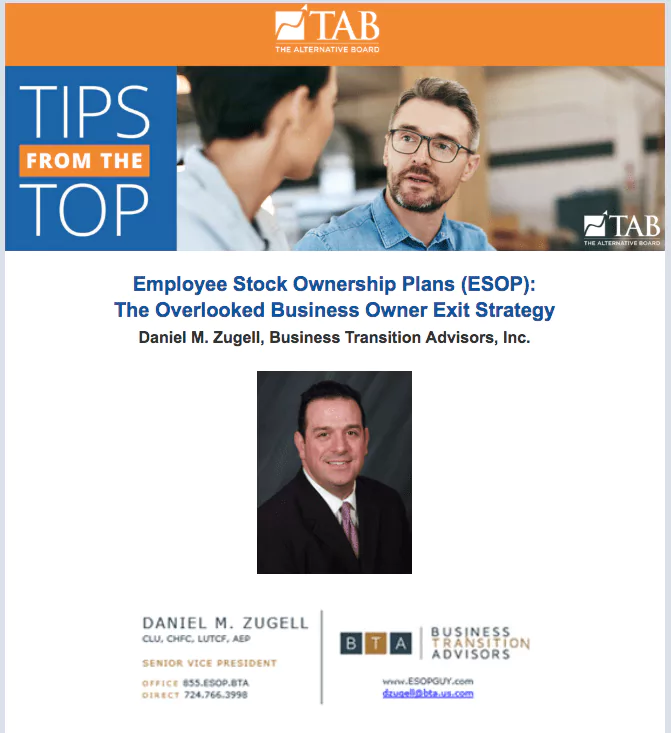
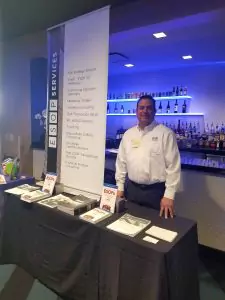

Watch the Pittsburgh Chapter Webinar Video Online.
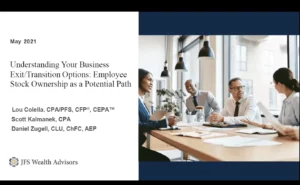
When owners of a privately-held business plan to retire, they’re faced with several potential exit options to monetize their wealth, preserve their legacy, and ensure
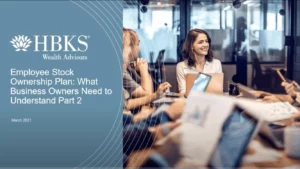
Featuring Ashleigh Walters, President of Onex, Inc. On February 24, HBKS Wealth Advisors presented a webinar offering insights on the advantages to employers and employees
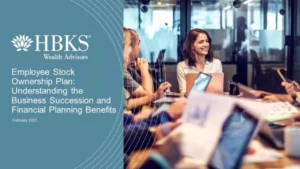
Featuring Ashleigh Walters, President of Onex, Inc. On February 24, HBKS Wealth Advisors presented a webinar offering insights on the advantages to employers and employees
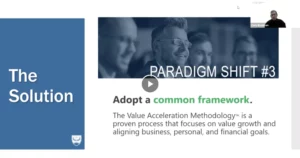
Pittsburgh Chapter featuring Mark Nicklas, President of Nicklas Supply Watch the webinar with Interchangecp.app.box.com.

By: Patrice Radogna Source: Accounting Today Stakeholders in mature architecture and engineering firms nearing retirement are bombarded with ideas from many advisors for the “best” exit

An ESOP is the only tax-qualified retirement plan that may borrow money. Both principal and interest, subject to limits, on debt incurred to purchase stock

ESOPs are projected to be the biggest transfer of wealth in U.S. history. A discussion regarding Employee Stock Ownership Plans (ESOPs) must contain the obligatory ESOP

A company sponsoring an ESOP must “make a market” for vested plan participants. To ensure the success of an Employee Stock Ownership Plan (ESOP) as

ESOPs have the most advantageous tax benefit. Download Document A recent Price Waterhouse Coopers report indicated that 62% of the U.S. companies planning to sell

Employee Stock Ownership Plans, or ESOPs for short, are gaining momentum as baby boomers look to transfer their businesses in a way that best suits
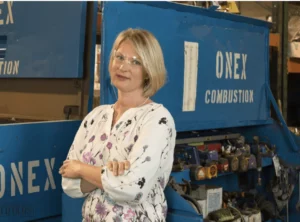
Ashleigh Walters, President of Onex, Inc., first heard of ESOPs – Employee Stock Ownership Plans – in November 2019 while sitting on a succession planning
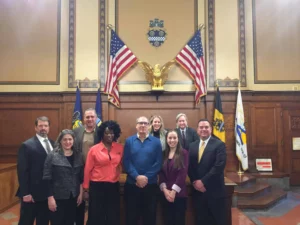
The unique succession strategy can save jobs, prevent companies from moving out of Pittsburgh and improve retirement planning. Business Transition Advisor’s Dan Zugell, Senior Vice
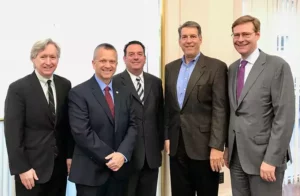
HB 1289 would incentivize certain businesses to convert to employee ownership—preventing them from moving and saving jobs BTA’s own Dan Zugell leading the efforts to expand employee
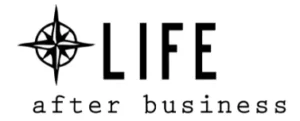
Tax Advantages & Culture “Maybe we do a partial ESOP so they have an employment stake in it, they have an ownership stake in it,
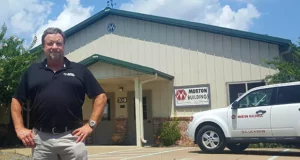
When Robert Bell went to work for Morton Buildings Inc. in Pearl in 1996, he was drawn by the fact that it was a family-owned
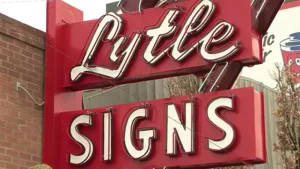
TWIN FALLS, Idaho (KMVT/KSVT) For almost 70 years Lytle Signs was owned by a Lytle. First it was Ray and Florence back when the company